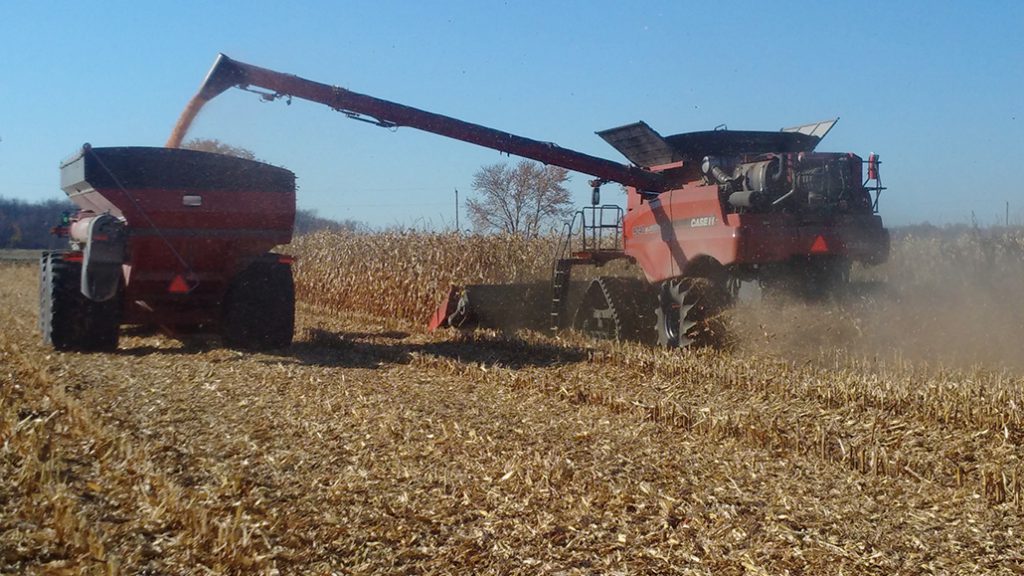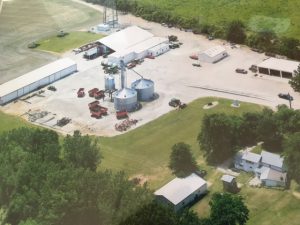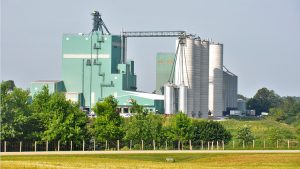New nutrient management association
ONTARIO PROFESSIONAL AGRI-CONTRACTORS ASSOCIATION

ON SEPTEMBER 13, the Ontario Professional Agri Contractors Association (OPACA) held its first AGM. It is hoped that the existence of the OPACA will herald in a new era where custom farming businesses will have more resources, a more efficient and effective collective relationship with government, and better rapport with the public. In the end, it’s anticipated that whatever specific activities OPACA engages in, they will enable its members to manage a wide range of issues to the betterment of member businesses, other stakeholders, and the environment.
The group’s existence stems from a rather surprising event during the peak of the porcine diarrhea epidemic during winter 2014/2015.
“At that time, the government had provided some funding for equipment improvements to help contain the outbreak,” notes one of OPACA’s founders, Sonke Claussen of Claussen Farms Custom Farming in Brucefield, Ontario. “However, that funding was only available to farmers and not the contractors who were applying approximately 50 per cent of Ontario’s manure and biosolids. This made us realize that there was a need for contractors to be officially recognized.”
Claussen and a few other contractors met to discuss the situation and to find a way to best represent their united interests.
It was decided that they would form an organization not only of manure haulers but of all land-based farm contractors, including balers, harvesters, seeders, and spray applicators. In addition to united representation to government and other parties, they planned for the association to promote efficient communication among members about the myriad of common problems and issues they face and establish collaboration with regulatory agencies and other ag contractor associations. OPACA would also educate members, customers, and the general public, engage in research partnerships, develop and implement best management practices relating to the promotion of sustainable nutrient application, and promote responsible use of crop management technology.
In terms of what legislation OPACA would like to perhaps influence, the provincial Nutrient Management Act (NMA) is at the top of the list, as is road legislation affecting farm machinery.
“The NMA is constantly updated and we know that road legislation changes are on the way to address certification, dimensions, speed limits, weight limits and registrations, so it just makes sense that we could be part of the discussion,” says Claussen. “We see our association as competent to offer advice and help with the discussion of changes so that new legislation is beneficial and works for all groups: citizens, farmers, and contractors.”
He says voluntary actions such as reducing speed in urban areas or limiting field work during certain times of the day or week might be a good idea to help build bridges with the non-farming community and perhaps get out in front of imposed laws. Claussen adds that OPACA could also work with institutions on things like consistency of lab report results and timely NASM (Non-Agricultural Source Materials) certification, the latter of which was a fairly thorny issue for some manure haulers this spring. OPACA could provide support, suggest solutions, or just raise the awareness of a possible problem.
Another issue that OPACA would like to address is insurance rates, which Claussen notes “are all over the place,” with insurance for manure application especially expensive. He and the other OPACA founders see tremendous potential in future efforts to collectively negotiate fair and economic rates for manure haulers, and to make insurance companies aware of how much professionalism, knowledge, and technology are used by today’s agricultural contractors.
FUTURE PLANS
Since their first talk over two and a half years ago, the original founding group has had numerous meetings in person and through conference calls, but due to everyone’s busy workloads, they only just recently registered OPACA as a non-profit corporation. An executive director has been hired, and the organization is growing. A questionnaire was sent out to potential members asking about their expectations and ‘acting’ directors have finalized the constitution so that it can be approved by the membership.
In the short-term, Claussen says OPACA also needs to reach out to other farm groups and associations and introduce itself so that they can start working together. In addition, contacting equipment manufacturers, dealers, and suppliers to ask them for support and collaboration is a priority because they and contractors all rely on each other.
Claussen believes, as it has elsewhere, custom farming and agricultural contracting will continue to gain importance here in Ontario.
“It has become a business with big commitments by company owners that expose them to financial and liability risks,” he says. “Huge pieces of specialized equipment need to be paid for and generate a return, and the use of new technologies, especially relating to precision farming, will grow.”
He believes legislation (especially in the area of biomass application) will get more specific and restrictive as well. With OPACA’s help and guidance, Claussen says “agricultural contracting in Ontario has a place to stay.”
To join the OPACA or find out more information, call 519-233-3198 or email claussen@tcc.on.ca. •

























